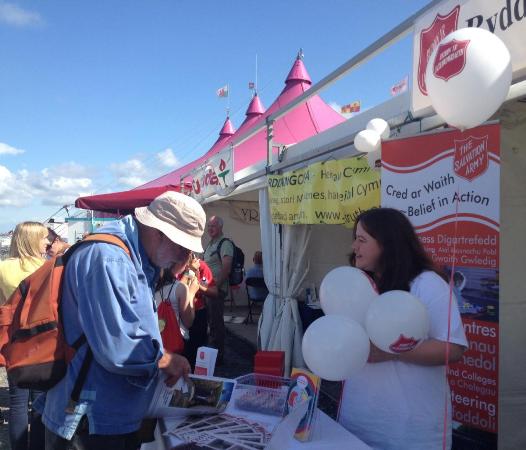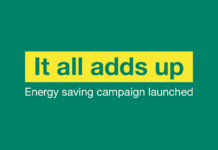EISTEDDFOD-goers can come and learn about The Salvation Army and the work it has been doing in communities across Wales for the last 140 years, in Cardiff next month.
The Salvation Army opened its first church in Wales in Merthyr Tydfil in 1878 and since then the organisation has grown and now has 35 churches across the country.
A range of activities take place at Salvation Army churches – or ‘corps’ as they are known, including Sunday worship and some run mother and toddler groups and lunch clubs.
Some Salvation Army churches also run foodbanks and employment services to support people to find work.
The organisation – which is a church and a charity, has Lifehouses in Cardiff where people who have experienced homelessness can go to receive support to help rebuild their lives.
In Cardiff, The Salvation Army also operates several other projects which support people who are experiencing homelessness, including the Bus Project.
In Wrexham, Tŷ Dewr is a Salvation Army Lifehouse providing accommodation for up to 12 ex-service personnel who are either at risk or are experiencing homelessness.
Captain Deryk Durrant from The Salvation Army’s Aberystwyth Corps, this year’s event organiser said:
“Please come and visit us on stand 408 at this year’s National Eisteddfod of Wales in Cardiff Bay where you’ll find a warm welcome and get the chance to find out about The Salvation Army’s work in Wales over the last 140 years.
“You can learn how our members’ faith has been put into action to serve communities at our corps from Wrexham to Newtown, to Tenby to Newport and how we meet the needs of each individual area where we serve.
“We’ll also explain about the professional and expert services that we provide for people who in a vulnerable position – such as those who are experiencing homelessness or struggling with substance abuse.”
The Salvation Army’s stand at the national Eisteddfod of Wales will be located near the Norwegian Church on Harbour Drive in Cardiff Bay from 3 August to 11 August.
Anyone who comes to The Salvation Army will receive assistance based solely on their need and our capacity to provide help.
We work with people who are vulnerable and marginalised and offer very practical help, unconditional assistance and support regardless of race, religion, gender or sexual orientation.
How The Salvation Army helps people:
Andy and Brian (not their real names) both received support at the Tŷ Gobaith Lifehouse in Cardiff.
“I took drugs and was a pain to people all my life but Tŷ Gobaith has changed me and I feel like I’m part of the world again” said Andy.
“Tŷ Gobaith is amazing – nobody else could have helped me before to come off drugs and that’s down to the people here because the staff are like your family. They make you feel welcome and the support the staff give you is amazing because they enjoy their jobs and you can see that on their faces. They go out of their way and are giving us support because they want to and are not expecting anything back. I used to have big issues around trust, but I can talk to the staff here about anything.”
Speaking about how Tŷ Gobaith has changed his life, Brian said:
“My life was bad and I was in a dark place – I was taking crack and drinking and I always thought I’d be on drugs and alcohol forever. I once took an overdose – enough drugs to kill three people, and actually died for seven and a half minutes. That’s when I knew it was time to stop doing drink and drugs and start doing something with my life, because if I didn’t it was going to kill me. I got onto the Bridge Programme at Tŷ Gobaith and when you come here you learn that drink and drugs don’t work and that there’s only one person who can change everything, and that’s you. Tŷ Gobaith were prepared to give me a chance and they saved my life.”

| [donate]
| Help keep news FREE for our readersSupporting your local community newspaper/online news outlet is crucial now more than ever. If you believe in independent journalism,then consider making a valuable contribution by making a one-time or monthly donation. We operate in rural areas where providing unbiased news can be challenging. |



















